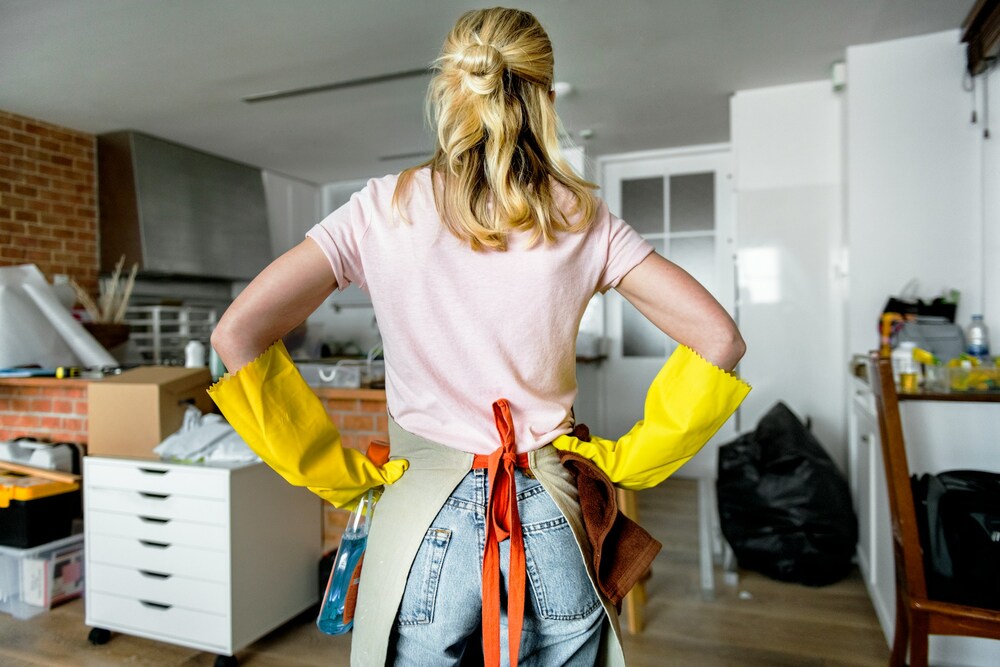Living in a clutter-free home is more than just visually appealing—it’s a catalyst for better mental health and productivity. When unnecessary items are removed, the mind feels lighter and more focused, enabling you to enjoy a more organized and efficient daily routine. Such environments reduce stress and anxiety, providing a sense of control over one’s life.
Let’s not overlook the practicalities: getting professional assistance for ABQ junk removal ensures that homes are cleared responsibly and that their clutter doesn’t just end up in a landfill but is disposed of in an eco-friendly manner.
Moreover, there’s intrinsic satisfaction in knowing that your actions contribute to environmental sustainability. Reducing the number of physical possessions helps lower your carbon footprint, actively promoting a greener lifestyle. As Psychology Today suggests, decluttering fosters creative growth by freeing up mental space for new ideas to flourish. This mental openness can lead to innovation in personal projects or broader professional endeavors.
Contents
Steps to Start Decluttering
- Identify clutter-prone areas: Start with spaces that naturally accumulate unused items, such as closets, basements, and garages. Often used as catchalls for everything from seasonal decorations to old clothing, these areas can become overwhelming if not regularly assessed.
- Set realistic goals: Approach each decluttering session with specific, manageable objectives to keep your energy levels and interest high. Whether tackling a single drawer or an entire room, having clear targets can help prevent burnout.
- Create categories for sorting: Break down your belongings into four main categories: Keep, Donate, Sell, and Recycle. This classification method ensures a streamlined process where no valuable item is unintentionally discarded. Items designated for recycling should adhere to local recycling guidelines to maximize environmental benefits.
- Follow the “one in, one out” rule: Prevent future clutter by allowing only as many new items into your home as there are items you’re letting go of. This simple rule can drastically decrease accumulation and encourage more thoughtful consumption habits.
Systematically approaching these steps transforms a potentially overwhelming task into a manageable routine. Tackling one small area at a time allows you to observe significant changes, creating a habit that eventually encompasses the entire household.
How to Repurpose and Recycle
Before discarding items, consider their potential for reuse. Many household items can serve new purposes with creativity. For instance, outdated furniture can be upcycled into unique statement pieces with just some paint and imagination.
At the same time, glass jars can be reused as storage containers for kitchen staples or turned into decorative candle holders. Recycling is key in reducing waste and utilizing resources such as the EPA’s recycling guidelines can guide you in responsibly disposing of waste.
Repurposing can become family-friendly, transforming decluttering from a tedious chore into an opportunity for creativity and bonding. Encouraging children to think creatively about reuse and recycling can instill eco-conscious habits that last a lifetime. This practice reduces waste and inspires a culture of resourcefulness within the home.
Sustainable Storage Solutions
Investing in sustainable storage solutions is beneficial for organizations and supports environmental health. Choosing eco-friendly materials such as bamboo shelves or baskets made from recycled materials can help store belongings more efficiently. These options are aesthetically pleasing and add an organic touch to home décor. Sustainable products often boast durability, ensuring longevity and reducing the necessity for replacements.
Adopting proper storage solutions allows you to keep your home orderly, making it easier to locate items when necessary and ensuring no unnecessary buildup. Efficient storage is a foundation for maintaining a clutter-free lifestyle, encouraging regular reassessment and tidying up.
Donation and Swap Events
Donation and swap events are excellent ways to declutter while giving back to your community and the planet. Participating in such events allows you to pass on usable items to others who may need them, encouraging resourcefulness and sustainability. These events provide an opportunity to declutter, socialize, and foster community. Gifting items can strengthen social ties and support local initiatives.
Moreover, swap events promote a circular economy, extending product life cycles. By circulating goods within a community, participants can discover new treasures without the environmental cost of manufacturing or disposing of new products.
Mental Health Benefits of a Clutter-Free Space
A tidy space is not just about aesthetics but is also vital for improved mental well-being. Clutter can lead to distraction and anxiety, creating a mental fog and reducing one’s ability to focus. Organizing your space creates an environment conducive to focus and relaxation, inviting peace into everyday routines.
The relationship between living spaces and mental health is well documented, and it highlights the actionable steps towards achieving clarity and emotional stability at home.
Beyond enhancing your mood, a clutter-free space can catalyze productivity by providing a more straightforward path for mindful living and strategic thinking. The clarity that comes from living in a well-organized environment reduces overwhelm and opens up mental space for creative pursuits and goal-setting.
Involving Your Community in Eco-Friendly Practices
Engaging with your community through sustainability workshops or volunteer clean-up days can amplify individual efforts, spreading awareness about ecological responsibility and sustainable living. Communities that share eco-friendly practices promote better environmental stewardship and establish stronger local connections and collaborative networks. This shared commitment to better living can lead to innovative solutions and communal growth.
Encouraging the exchange of sustainable ideas and resources breeds a culture of caring and cooperation. By working together, individuals can create ripples of change that extend beyond their immediate surroundings, influencing broader societal patterns.
Long-Term Strategies for a Clutter-Free Home
Maintaining a clutter-free home requires ongoing commitment, not just a deep clean. Regular assessments, alongside adaptable storage solutions, are vital to evolving your decluttering strategy as your household’s needs change. Implementing habits such as seasonal reviews of possessions, mindful purchasing decisions, and developing personalized organization systems ensures that clutter doesn’t accumulate over time.
Consistency is key. As with any meaningful goal, persistently adopting strategies that fit into your lifestyle will yield remarkable benefits in mental clarity and the overall harmony of your home environment. Decluttering a routine aspect of your life secures a cleaner space and instills a sense of discipline and order that can permeate other aspects of personal development and lifestyle management.





